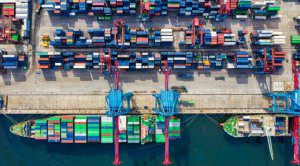 Canada has an important role to play in global affairs, but only with a fulsome and substantive review of our foreign policy can we hope to be ready for what is to come, write Robert Murray and Jean-Sébastien Rioux.
Canada has an important role to play in global affairs, but only with a fulsome and substantive review of our foreign policy can we hope to be ready for what is to come, write Robert Murray and Jean-Sébastien Rioux.
By Robert Murray and Jean Sébastien Rioux, April 27, 2020
The actors and processes in the international system have undergone significant change over the last five years, including Brexit, the election of U.S. President Donald Trump, the rise of populism in Western democracies, the relative decline of the United States and rise of powers like China and Russia. In fact, there is an overall realignment of the post-World War II international society where western values were at the forefront of global decision-making, towards a more anarchic environment where powerful states do as they please.
These global disruptions are having profound impacts on Canada. The volatility and protectionist policies of the Trump administration have meant that we can no longer count on our largest and most important ally. Developing a Canadian foreign policy for a multipolar world has been tumultuous thus far, especially in our experience with China, evidenced by disputes over trade, canola, and the unlawful detainment of two Canadians. Multilateralism has been the cornerstone of Canada’s foreign policy since World War II, and the key relationships that Canada counts on for its security and trade, such as the United Nations, NATO and the Bretton Woods architecture have been weakened. These disruptions are significant enough that a recent headline in The Economist likened it to Canada being “alone in the jungle.”
The global COVID-19 pandemic has further exacerbated some of these challenges and highlighted where the cracks in a globalized system lay. Recent weeks have seen global supply chains for personal protective medical equipment and pharmaceuticals disrupted by protectionist measures that have threatened Canada’s ability to properly plan and respond to the pandemic. The global multilateral health regime has been cast into doubt given the World Health Organization’s slow and unclear response, and in the midst of a once-in-a-century global pandemic, which poses an immediate threat to global peace and security, the United Nations Security Council has been absent.
The economic and political fallout from this global pandemic will undoubtedly last for years, though for the time being, all resources must be focused on coping with and addressing COVID-19. When the immediate crisis subsides, it will be important for Canada to take stock of how the COVID-19 crisis further demonstrated Canada’s lack of preparedness for the emerging world order and the need to rethink Canada’s position in the world through a complete review of Canada’s foreign and trade policies.
This comprehensive review must see Canada strike a royal commission, something that has not been done since 1982, to review and define our national interests, and long-term trade and economic objectives. It is obvious that Canada must become more independent in the world, must define a foreign policy that is less dependant on the United States and more reflective of the emerging international order, must review the value of its multilateral commitments, and become more confident in its relationships. This can be realized once a royal commission undertakes a wide-ranging consultative process that the majority of Canadians can embrace.
A significant focus must be on advancing Canada’s interests with the United States, while diversifying our economic and security interests with other like-minded countries. The Trudeau government has had success in its dealings with the Trump administration, but events during the COVID crisis continue to demonstrate that Canada cannot rely on its relationship with the United States alone to navigate global affairs.
The commission would also have to look at Canadian trade policy and objectives, and recently ratified trade agreements, to assess whether there is a close enough alignment in regulations between how we regulate in Canada and help our producers align them with how our trade partners want things done.
There must also be a substantive conversation about an industrial policy framework within Canada’s trade policy that is geared to avoiding the greatest vulnerabilities that COVID-19 has highlighted.
Finally, a royal commission must consult widely on issues related to our energy, natural resources and agricultural export capabilities and export-enabling infrastructure. If Canada is to survive and hope to prosper in a global economic contraction, we must have a national conversation on how our exports fit into our longer-term objectives and how to invest in infrastructure that will ensure Canadians agree on how to grow which exports over the next decades.
The COVID-19 pandemic, combined with the ongoing shift toward a multipolar international system and global economic crisis, have demonstrated beyond any doubt the need for a strong and sustainable Canadian foreign policy and trade strategy to help navigate complex issues in the new world order. Canada has an important role to play in global affairs, but only with a fulsome and substantive review of our foreign policy can we hope to be ready for what is to come.
Dr. Robert W. Murray is a MLI Senior Fellow and the president and CEO of Grande Prairie Regional College.
Dr. Jean-Sébastien Rioux is an associate professor and director of the International Policy and Trade Program at the University Calgary’s School of Public Policy.




